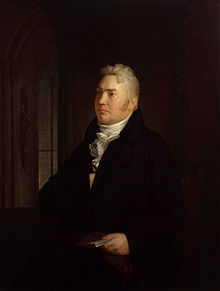Samuel Taylor Coleridge (1772 – 1834) wrote Zapolya in 1817. He was imitating Shakespeare’s Winter’s Tale, he claimed, hoping:
“I will be well content if my readers will take it up, read it and judge it, as a Christmas tale.”
There is little in the work itself that is decidedly Christmas apart from a mother fleeing with her infant. Instead, there are thrones usurped, sunken caves and werewolves(!) Despite these dramatic motifs, gaining Shakespeare’s lofty status proved elusive.
Writing a good drama was (and still is) hard–even for Coleridge, that “giant among dwarves.”
Jeffrey’s Edinburgh Review, Volume 80, was unstinting in its review:
1) Don’t be boring.
“In its present shape, we conceive (Zapolya) has about it that indescribable something, which, if not the dead weight of mediocrity will sink it, will ensure a speedy neglect from the bulk of readers.”
2) Convoluted plots are right out!
“To understand its plot and keep in view its progress, the reader must take some pains, and this is what no reader will ever do.”
3) Show. Don’t Tell.
“Much of the most striking parts of his story is related, and not acted…Enforce these with the exact sentiment which is to body them forth…pushing on the story, that purpose of dramatic action..”
4) Kill the darlings. Kill them.
“Zapolya, then, as a drama, will never succeed. Nor, as a tale, is there anything in it to captivate. It must exist as a poem; and even in that case, we think it is decidedly too long.”
A Christmas gift to writers, if you will.



Oh, my-it appears Coleridge missed his mark. Those critics were merciless!
LikeLike
I know, poor man–the hazards of switching genres!
LikeLike
I’ve GOT TO read this one! Werewolves and Christmas, together at last! I am intrigued, to say the least.
And THANK YOU btw! You have made 100 comments on my blog…putting you many, many comments ahead of anyone else. You are my MVP, Lady Angie! I shall have to design an award for you!
Thank you so much for being the wonderful person, reader and talented writer you are.
xoxo nicole*
LikeLike
just leave me a tiny bit of your merciless writing humor under the Christmas tree for me, will you?
LikeLike
What’s that? A special Angelyn Christmas post request?
I think we can do that. Requests? A tiara that would have Regency implications? A favorite gemstone? Or do you just want me to pop a bottle of champagne and get all snarky-silly about whatever?
LikeLike
Any of the above will do–and maybe a little of your magic power to amuse will rub off on me, like fairy dust from the Sugar Plum Fairy!
LikeLike
For some reason, Christmas stories often have ghosts or other supernatural beings Dickens’ Christmas carol is just following that tradition. Mystery stories also seem to be a staple of Christmas tide. very odd. Of course, I find it odd that a traditional outing for Christmas is to see a Punch and Judy or Harlequin puppet show. which always included a scene of someone pummeling another.
Why is Christmas– supposedly a season of peace– celebrated by stories of death, ghosts, and violence?
LikeLike